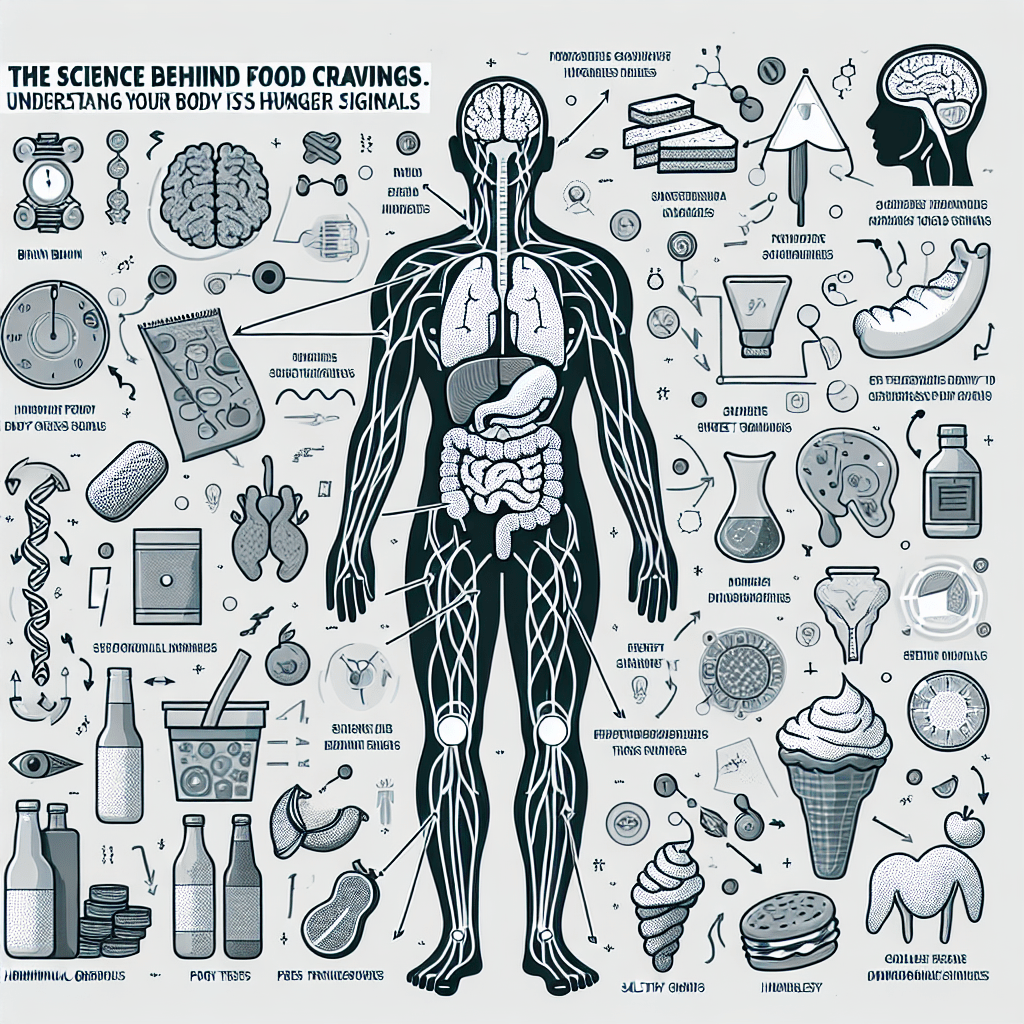Food cravings are a common occurrence for many people, often leading to overeating and weight gain. Understanding the science behind food cravings can help you better manage your hunger signals and make healthier choices when it comes to food.
What Causes Food Cravings?
Food cravings are often driven by a combination of biological, psychological, and environmental factors. Biological factors include hormones, neurotransmitters, and other chemicals in the brain that influence our appetite and cravings. For example, the hormone ghrelin increases appetite, while the neurotransmitter dopamine plays a role in reward-seeking behavior and pleasure.
Psychological factors, such as stress, emotions, and habits, can also contribute to food cravings. Emotional eating, for example, is a common response to stress or negative emotions, leading to cravings for comfort foods. Additionally, habits and routines can trigger cravings for certain foods, especially if they are associated with positive memories or experiences.
Environmental factors, such as food accessibility, advertising, and social influences, can also impact food cravings. Seeing a commercial for a delicious burger or smelling freshly baked cookies can trigger cravings, even if you weren’t hungry before. Additionally, social situations and peer pressure can influence your food choices and cravings.
Understanding Your Body’s Hunger Signals
Listening to your body’s hunger signals is key to managing food cravings and maintaining a healthy relationship with food. Pay attention to physical signs of hunger, such as stomach growling, lightheadedness, or a drop in energy levels. These signals indicate that your body needs fuel and it’s time to eat.
It’s also important to differentiate between true hunger and emotional cravings. True hunger is a physiological need for food to fuel your body, while emotional cravings are often triggered by stress, boredom, or other emotions. Before reaching for a snack, ask yourself if you’re truly hungry or just seeking comfort or distraction.
Tips for Managing Food Cravings
To help manage food cravings and make healthier choices, consider the following tips:
- Stay hydrated: Dehydration can sometimes be mistaken for hunger, so make sure to drink enough water throughout the day.
- Eat balanced meals: Including protein, fiber, and healthy fats in your meals can help you feel full and satisfied, reducing the likelihood of cravings.
- Plan ahead: Have healthy snacks on hand, such as fruits, nuts, or yogurt, to avoid reaching for less nutritious options when hunger strikes.
- Practice mindful eating: Pay attention to your food choices, eating habits, and hunger signals to better understand your body’s needs and cravings.
- Manage stress: Find alternative ways to cope with stress or emotions, such as exercise, meditation, or talking to a friend, instead of turning to food for comfort.
Conclusion
Food cravings are a natural part of life, but understanding the science behind them can help you manage them more effectively. By listening to your body’s hunger signals, differentiating between true hunger and emotional cravings, and making healthier choices, you can take control of your eating habits and maintain a balanced diet.
FAQs
Q: Are food cravings bad?
A: Food cravings are not inherently bad, but they can lead to overeating and weight gain if not managed properly. It’s important to understand the reasons behind your cravings and make conscious choices to fulfill your body’s needs without overindulging.
Q: Can food cravings be satisfied with healthier options?
A: Yes, it is possible to satisfy food cravings with healthier options. For example, if you’re craving something sweet, opt for fruits or dark chocolate instead of sugary snacks. Finding healthier alternatives that fulfill your cravings can help you make better choices for your overall health.
TIP:
Remember, it’s okay to indulge in your food cravings occasionally as part of a balanced diet. Enjoying your favorite treat in moderation can satisfy your cravings without derailing your healthy eating habits.
#Science #Food #Cravings #Understanding #Bodys #Hunger #Signals
